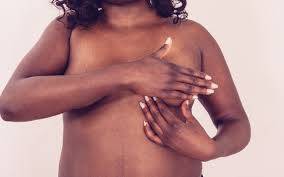Comprehensive Guide: How to Prevent Breast Cancer
Introduction:
Breast cancer is one of the most common cancers among women worldwide. While there are various risk factors associated with breast cancer, including genetics, age, and hormonal factors, there are also numerous preventive measures that individuals can take to reduce their risk. By adopting healthy lifestyle habits and being proactive about breast health, individuals can significantly lower their chances of developing breast cancer. In this comprehensive guide, we'll explore various strategies and tips for preventing breast cancer.
Understanding Breast Cancer:
Before diving into prevention strategies, it's essential to understand what breast cancer is and how it develops. Breast cancer occurs when abnormal cells in the breast grow out of control, forming a tumor. These tumors can be either benign (non-cancerous) or malignant (cancerous). Malignant tumors have the potential to spread to other parts of the body, making early detection and prevention crucial.
Risk Factors for Breast Cancer:
Several factors can increase a person's risk of developing breast cancer, including:
1. Age: The risk of breast cancer increases with age, with most cases diagnosed in women over 50.
2. Genetics: A family history of breast cancer, particularly in first-degree relatives (such as a mother, sister, or daughter), can increase the risk.
3. Hormonal Factors: Excessive exposure to estrogen, whether through hormone replacement therapy, early menstruation, or late menopause, can elevate the risk of breast cancer.
4. Lifestyle Factors: Poor diet, lack of physical activity, alcohol consumption, smoking, and obesity are all linked to an increased risk of breast cancer.
Prevention Strategies:
While some risk factors for breast cancer, such as genetics, cannot be changed, there are several proactive steps individuals can take to lower their risk:
1. Maintain a Healthy Weight:
Obesity has been linked to an increased risk of breast cancer, particularly in postmenopausal women. By maintaining a healthy weight through a balanced diet and regular exercise, individuals can reduce their risk of developing breast cancer.
2. Adopt a Healthy Diet:
A diet rich in fruits, vegetables, whole grains, and lean proteins can help lower the risk of breast cancer. Aim to incorporate a variety of colorful fruits and vegetables into your meals, as they contain essential vitamins, minerals, and antioxidants that support overall health and may reduce cancer risk.
3. Limit Alcohol Consumption:
Alcohol consumption has been linked to an increased risk of breast cancer. Limiting alcohol intake to no more than one drink per day for women and two drinks per day for men can help reduce this risk.
4. Quit Smoking:
Smoking is not only harmful to overall health but also increases the risk of several cancers, including breast cancer. If you smoke, quitting is one of the best things you can do to improve your health and reduce your risk of cancer.
5. Stay Active:
Regular physical activity has been shown to reduce the risk of breast cancer. Aim for at least 150 minutes of moderate-intensity exercise or 75 minutes of vigorous-intensity exercise each week. Activities such as walking, swimming, cycling, and strength training are all beneficial.
6. Breastfeed If Possible:
Breastfeeding has been associated with a reduced risk of breast cancer, particularly in premenopausal women. If possible, aim to breastfeed your baby exclusively for the first six months, as recommended by health experts.
7. Know Your Family History:
If you have a family history of breast cancer or other factors that increase your risk, such as a genetic mutation (e.g., BRCA1 or BRCA2), talk to your doctor about additional screening and prevention strategies. Genetic counseling may also be beneficial in understanding your risk and options.
8. Conduct Regular Breast Self-Exams:
Become familiar with the normal look and feel of your breasts through regular self-exams. If you notice any changes, such as lumps, swelling, or skin changes, report them to your doctor promptly. While self-exams are not a substitute for mammograms or clinical exams, they can help detect changes early.
9. Schedule Regular Clinical Breast Exams:
In addition to self-exams, schedule regular clinical breast exams with your healthcare provider. These exams allow healthcare professionals to detect any abnormalities or changes in your breasts that may require further evaluation.
10. Get Screened:
Mammograms are an essential tool for detecting breast cancer early, often before symptoms appear. Follow recommended screening guidelines based on your age, family history, and other risk factors. For most women, mammograms are recommended annually starting at age 40 or earlier if there are additional risk factors present.
Conclusion:
Breast cancer prevention involves a combination of lifestyle modifications, early detection, and proactive healthcare management. By adopting healthy habits such as maintaining a healthy weight, eating a balanced diet, staying active, and avoiding tobacco and excess alcohol, individuals can significantly reduce their risk of developing breast cancer. Additionally, staying informed about breast health, knowing your family history, and following recommended screening guidelines are essential steps in early detection and prevention. By taking proactive measures and prioritizing breast health, individuals can empower themselves to lower their risk of breast cancer and lead healthier lives. Remember, prevention is key, and it's never too late to start making positive changes for your health.


